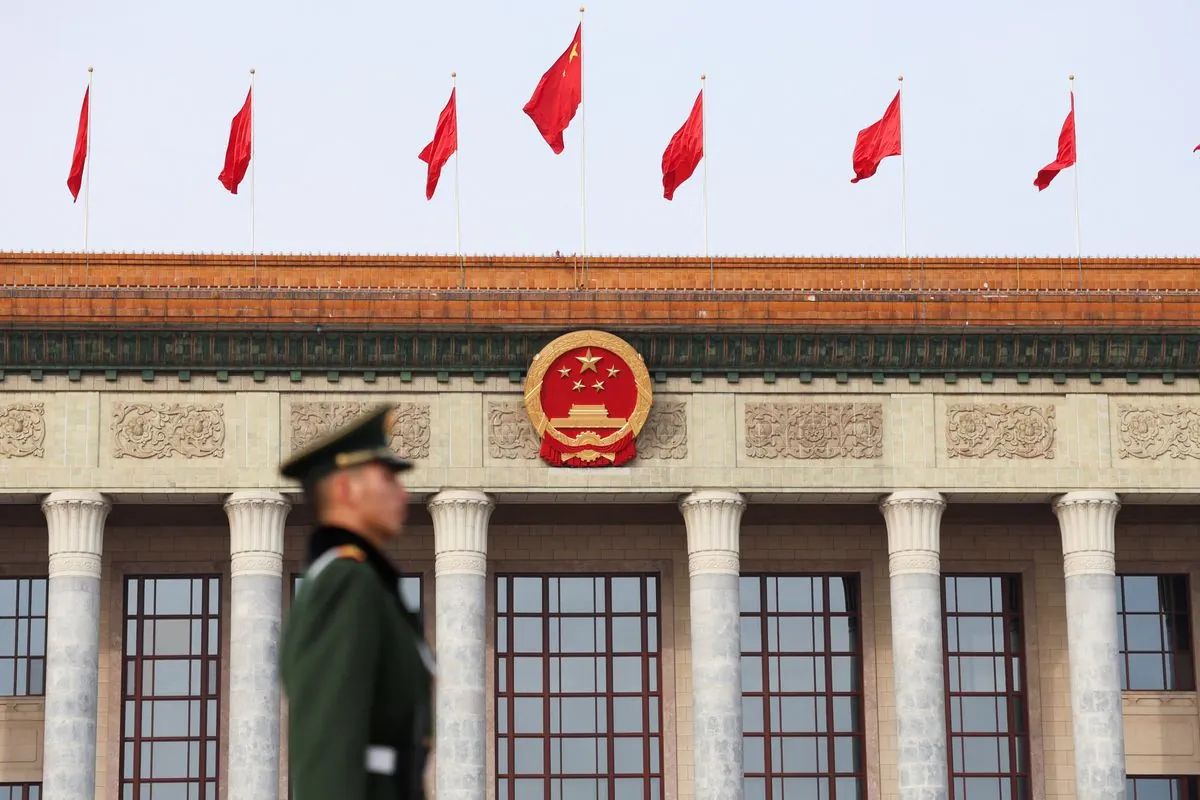John Moolenaar, Republican chair of the House select committee on China, has emphasized the need for legislation to restrict U.S. investments in China. Speaking at an American Enterprise Institute event, Moolenaar highlighted the importance of preventing American investors from inadvertently supporting activities that could be detrimental to U.S. interests.
The proposed legislation aims to establish an "outbound investment regime" that would prohibit investments in certain Chinese businesses. Moolenaar stated, "We shouldn't be helping the Chinese military, we shouldn't be supporting genocide." This statement refers to the alleged treatment of the Uighur minority in Xinjiang, which the United States formally accused China of genocide in January 2021.
The House Select Committee on China, established in January 2023, has made this issue its primary focus. The committee's efforts align with broader U.S. concerns about the complex economic relationship with China, which has been a major focus of U.S. foreign policy in recent years.
Previous attempts to implement such restrictions have faced challenges. A similar measure was removed from the CHIPS Act (Creating Helpful Incentives to Produce Semiconductors Act) before its enactment in 2022. In response, President Biden issued an executive order in August 2023, granting the U.S. Treasury Department authority to restrict American investments in specific Chinese sectors. These sectors include semiconductors and microelectronics, quantum information technologies, and certain artificial intelligence systems.
The semiconductor industry, crucial for advanced technologies and national security, has been a particular area of concern. Semiconductors, materials with electrical conductivity between conductors and insulators, are essential components in modern electronics and play a vital role in various strategic technologies.
While the Treasury Department proposed rules for implementing the executive order in July 2023, these regulations have not yet been finalized. The delay in finalizing these rules underscores the complexity of balancing economic interests with national security concerns.
Mike Johnson, who became House Speaker in October 2023, reportedly aims to have legislation in place by the end of 2024. This timeline reflects the urgency felt by some lawmakers regarding the issue of U.S. investments in China.
The United States and other Western nations have already imposed sanctions on Chinese officials for alleged human rights abuses in Xinjiang. These sanctions can include asset freezes and travel bans on individuals and entities. The United Nations defines genocide as acts committed with intent to destroy, in whole or in part, a national, ethnical, racial or religious group.
China has consistently rejected allegations of abuses in Xinjiang. Since 2018, Chinese officials have described facilities in the region as "vocational training centers" aimed at combating religious extremism among the Uighur population, a Turkic ethnic group primarily living in Xinjiang.
The ongoing debate over U.S. investment restrictions in China reflects the broader challenges in managing the U.S.-China economic and security relationship. As both a major trade partner and strategic competitor, China presents a complex set of considerations for U.S. policymakers seeking to protect national interests while maintaining economic engagement.
"We have to have an outbound investment regime that basically says, 'No investment in these businesses that are on some kind of a list,' that says, 'We shouldn't be helping the Chinese military, we shouldn't be supporting genocide.'"
As discussions continue, the outcome of this legislative effort will likely have significant implications for U.S.-China relations and the global economic landscape.
